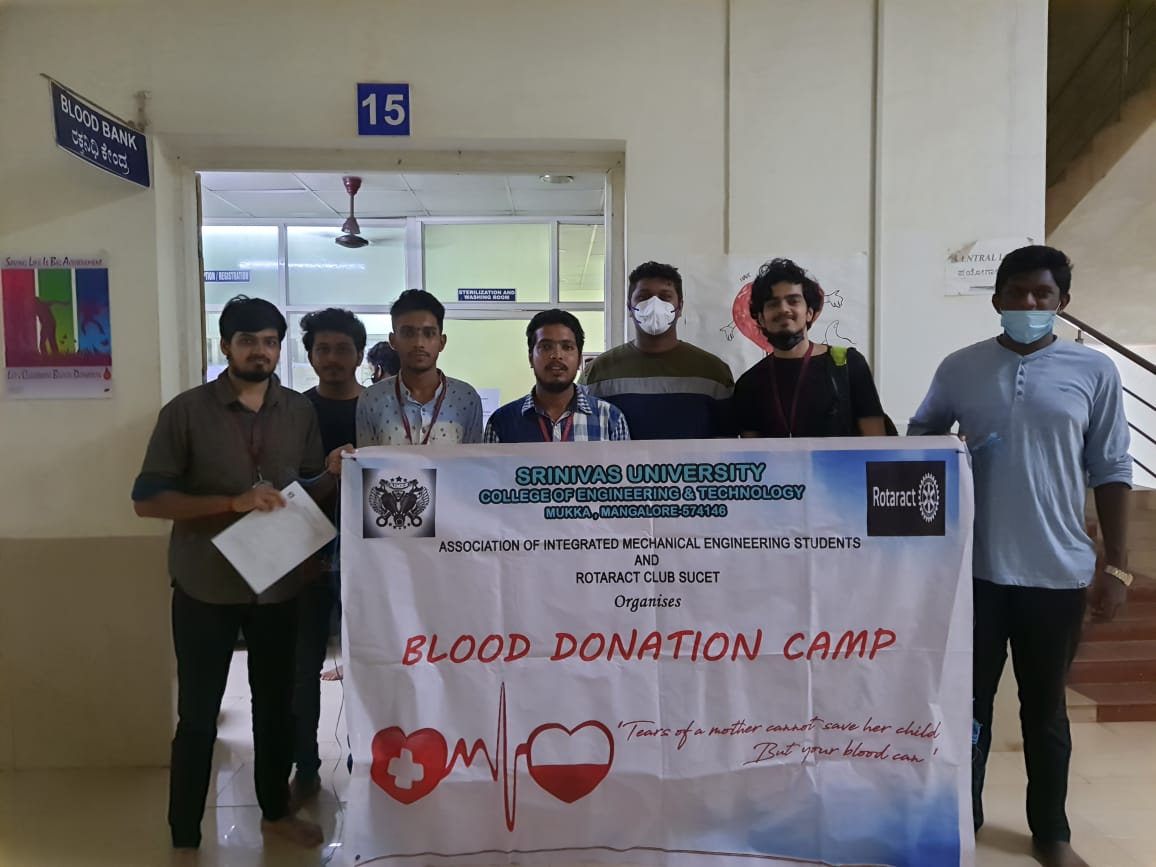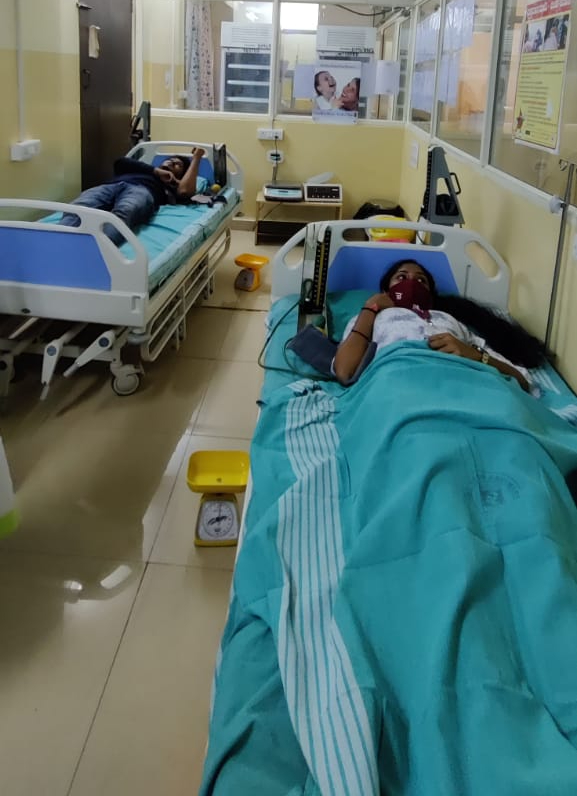BACHELOR OF TECHNOLOGY IN ELECTRONICS & COMMUNICATION ENGINEERING
Bachelor of Technology in Electronics & Communication Engineering
Bachelor of Technology (B.Tech.) Electronics and Communication Engineering
Duration : 4 Years / 8 Semesters (Admissions open for the batch 2023-24).
A pass in the 10+2 (Higher Secondary) examination or any other equivalent examination of any authority, recognized by Srinivas University, with an aggregate of 50% of marks in Mathematics, Physics and Chemistry.(45% in case of SC/ST candidates). Admission needs valid score in SUAT/CET.Eligibility: A pass in the 10+2 (Higher Secondary) examination or any other equivalent examination of any authority, recognized by Srinivas University, with an aggregate of 50% of marks in Mathematics, Physics and Chemistry.(45% in case of SC/ST candidates). Admission needs valid score in SUAT/CET.
Lateral Entry:The candidates, who have successfully completed 3 year diploma in Engineering, are eligible to apply for lateral entry into 2nd year of B.Tech. Courses .Candidates will be admitted to second year of the programme only after appearing the Srinivas University selection process for engineering programme.
About B.Tech. in Electronics and Communication :
The goal of the Department of Electronics and Communication Engineering is to impart synergistic education in the field of Electronics & Communication and produce competent and resourceful young E&C Engineers with high technical knowledge and good practical skills and excel in wide variety of job profiles. To achieve this, curriculum provides a strong foundation in both the technological and theoretical aspects of E&C Engineering. It also provides abundant opportunities to students to work on self-designed mini-projects, develop communication skills, explore internship opportunities in industry and take part in national and international conferences and circuit/Software design contests. E&C department is committed to promote research, industrial interaction and multi-dimensional development of the students with theoretical as well as practical exposure. The course contents of this program deals with acquiring basic knowledge of Design and Development in Electronic Devices, IC Design, Microprocessor and Microcontrollers Applications, Analog Systems, Digital Systems, Signal Processing, VLSI, Satellite and Microwave Communication Systems, Mobile Communication, Fiber Optics Communication, Algorithms design and analysis, operating systems, System Software and Embedded Systems.
Special Features of the Program:
- State of art facilities with modern multimedia lecture & seminar halls.
- Well-equipped laboratories with modern instruments with latest technology.
- Continuously upgraded laboratories for hands on training.
- Good study materials will be provided for every subject.
- Industry oriented syllabus with special focus on hands on training.
- Project/Mini project in each semester.
- Innovations in examination system with opportunity for personal seeing of evaluated papers.
- Make-up exams in every semester to avoid year loss.
- Placement support and research oriented projects for every student.
- Focus on Soft Skill Development & Training on competitive exams.
- Regular Technical Seminars by experts.
- Interaction with Industries, R & D organizations.
- Regular Industrial Visits.
Career Opportunities:
Graduates in Electronics and Communication Engineering have career opportunities in Defence Sector, Aviation and Avionics, Telecommunication Industry, Embedded System Development, Analog Design, Electronic and Hardware Manufacturing, VLSI design, Power Sector, Electronic Security Systems, Robotics, Communication Protocol Development, Optical Communication Development, Signal processing, Consumer Electronics, Mobile and Wireless Communication etc
- Further Opportunity to pursue M.Tech.
- Opportunity to appear for GATE/Engineering Services and other competitive Exams.
The department offers undergraduate programme B.TECH. in Electronics & Communication Engineering. Well experienced faculty members with excellent knowledge in diverse fields are the back bone of the department. The departments focus is to impart synergistic education in the field of Electronics & Communication and to produce quality E&C Engineers with high technical knowledge and good practical skills combined with leadership skills.
The department is committed to promote research, industrial interaction and multi dimensional development of the students with theoretical as well as practical exposure. Thus the department has been able to contribute a large pool of talented Electronics Engineers. The department is housed with state of art facilities with modern multimedia lecture & seminar halls and all laboratories equipped with modern instruments with latest technology. The department is continuously updating its facilities.
The department has following well established laboratories:
Analog Electronics Lab – Analog circuits are constructed and its performance is tested in various platforms like terminal board, breadboard, PCB and Analog trainer kit. This lab is equipped with higher end analog CROs and Digital storage Oscilloscopes for measuring Electronic signals of different amplitude and frequency.
Digital Electronics Lab – In this lab Digital circuits are designed and constructed using integrated chips. The operation of the circuit is analyzed using Digital IC Trainers.
Microcontroller Lab – Extensive programming skills are imparted to students using Keil Software in this lab. Assembly language programs are used for interfacing 8051 Microcontroller and MSP430 kits are coded and executed.
HDL Lab – Codes for digital Circuits are written using Hardware Defined Language such as VHDL and Verilog and tested using Xilinx Software. Timing signals are analyzed at various time intervals.
Analog Communication Lab – In this lab Analog circuits are implemented using Operational Amplifier ICs and tested. Modulation techniques such as AM, PWM, FM PAM, PPM are implemented in Hardware and tested using higher end Digital Storage Oscilloscopes.
Digital Signal Processing Lab – Digital signals are analyzed using MATLAB tool box and DSP kit in this lab.
Advanced Communication Lab – Modules to study Advanced Digital Modulation techniques such as ASK, FSK, PSK, DPSK, QPSK, TDM, PCM etc are available in this lab. Equipments to study Micro Wave communication, Optical Communication and Micro-strip antenna are also available.
Microprocessor Lab – 8086 Assembly language programs are executed using MASM Software which is available in this lab.
Power Electronics Lab – In this lab modules are available to study the characteristics of power semiconductor devices such as SCR, Triac&Diac, and Speed control of AC Universal motors, AC to DC convertors and Inverters.
Very large Scale Integration Lab – Using Mentor Graphics EDA tools, schematic and layout design of Integrated circuits are implemented and analyzed.
Projects sponsored by KSCST Bangaluru and VGST are taken up by the students. Students are encouraged to do mini projects. Training programs are conducted to impart practical exposure to students. Industrial visits are conducted to expose the students to industrial environment. Seminars, invited talks, soft skill training and technical competitions are held at regular intervals. To enrich the knowledge of the students in recent advanced technologies E&C department is running its own library with more than 500 volumes. The department is working hard to build up competency based environment.
Scope of Electronics and Communication Engineering:
The applications of Electronics and Communication Engineering are so wide that it affects our daily lives in various ways. The technology has given Television, Radio, Computers, Telephones and many more gadgets and made our life easier and enjoyable. As India is progressing day by day, we come to know about new gadgets, opportunities for Electronics and Communication Engineers are just immense. Electronics & Communication Engineering offers scope in the field of Research, Mobile communication, Microwave communication, Robotics, Defense, Radio communication, TV broadcasting, Telephony, VLSI design, DSP, Nuclear science and Wireless communication.
Job Opportunities
The consumers need new devices and gadgets to support them in their day today life. All such devices need electronic circuits and software interface. The controlling programs are architected and developed by E&C engineers. This provides lots of job opportunities for Electronics and Communication Engineers not only in the core electronics industry but also in research and development software industry and government sectors.
E&C Engineers can get job opportunities in government sectors as listed below:
- BSNL conducts many examinations like BSNL JTO, BSNL TTA, and MTNL etc.
- Railway Department
- Electricity Board
- ISRO, DRDO, BARC, NTPC, NIC, SAIL, BHEL, BEL etc.
- Banks, IBPS PO, Special IT Officer, etc.
E&C Engineers can get potential job opportunities in IT sectors like:
- TCS
- CTS
- IBM
- WIPRO
- MICROSOFT
- YAHOO
- SYNTEL
- INFOSYS
- ACCENTURE
- CAPGEMINI
- DELL
- IGATE
- MPHASIS
- ORACLE etc.
E&C Engineers can get jobs in core (Electronics) companies like:
- SELECTRON
- FLEXTRONICS
- JABIL CIRCUITS
- SAMTEL GROUP
- MOSER BAER INDIA LIMITED
- HICAL MAGNETICS
- TYCO ELECTRONICS
- MIDAS COMMUNICATIONS
- ELIN ELECTRONICS LIMITED
- CADENCE DESIGN SYSTEMS
Faculty
| SI No. | Photo | Name Of Faculty |
| 1 | 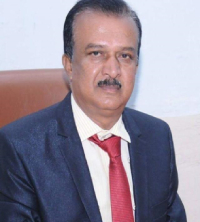 |
Dr. Rajanna G.S Ph.D Professor Experience: 33 years |
| 2 |
Mr. Anantharama H M.Tech, (Ph.D) Associate Professor Experience: 9 years |
|
| 3 | 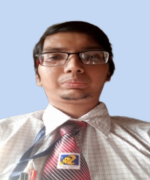 |
Mr. Om Prakash V Bhat M.Tech, (Ph.D) Associate Professor Experience: 9 years |
| 4 | 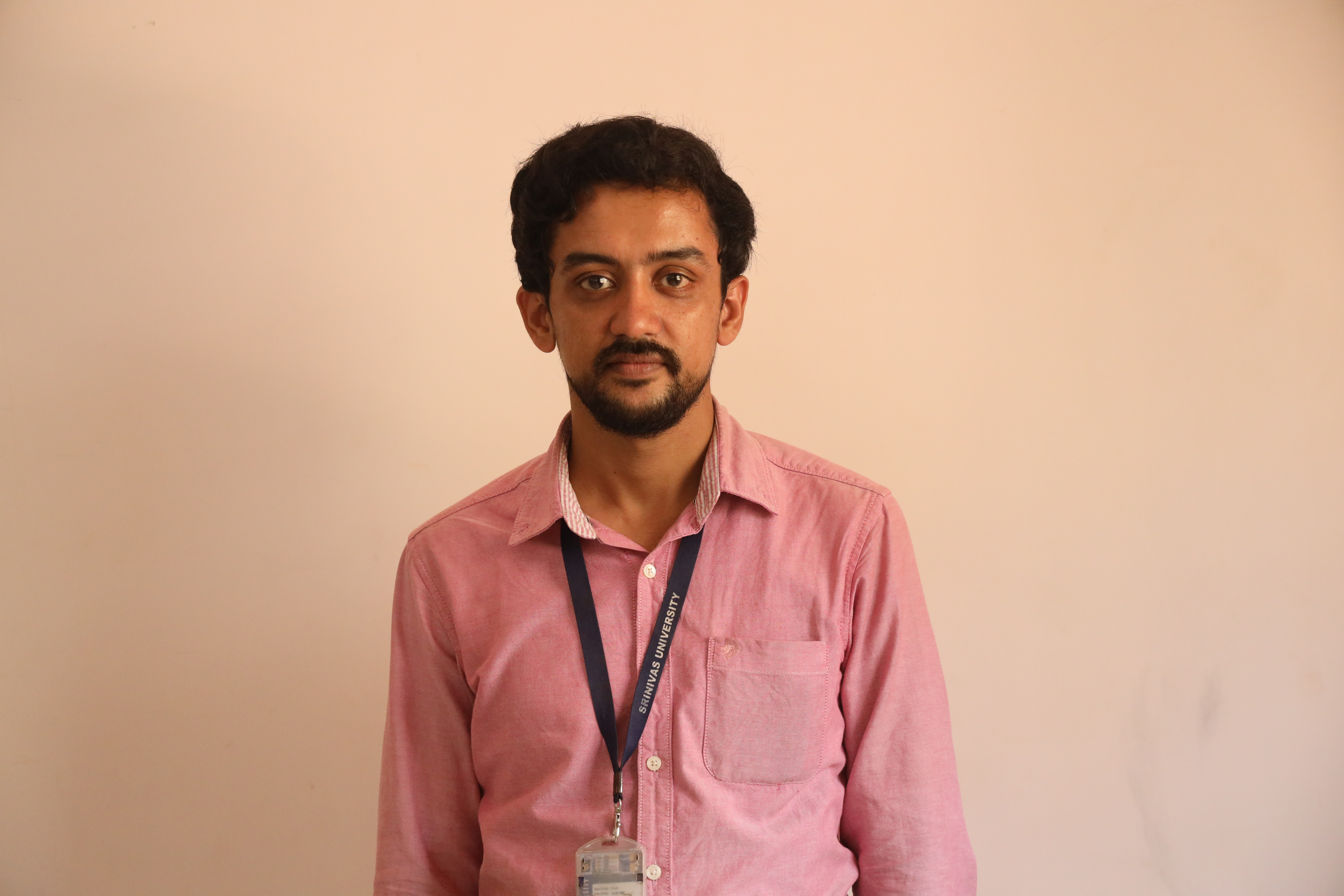 |
Mr. Krishna Kaushik P M.Tech, (Ph.D) Associate Professor Experience: 8 years |
| 5 | 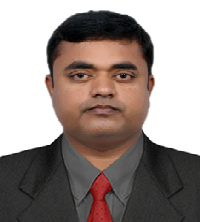 |
Veeranna Kotagi (Ph.D) H.O.D and Assistant Professor |
| 6 | 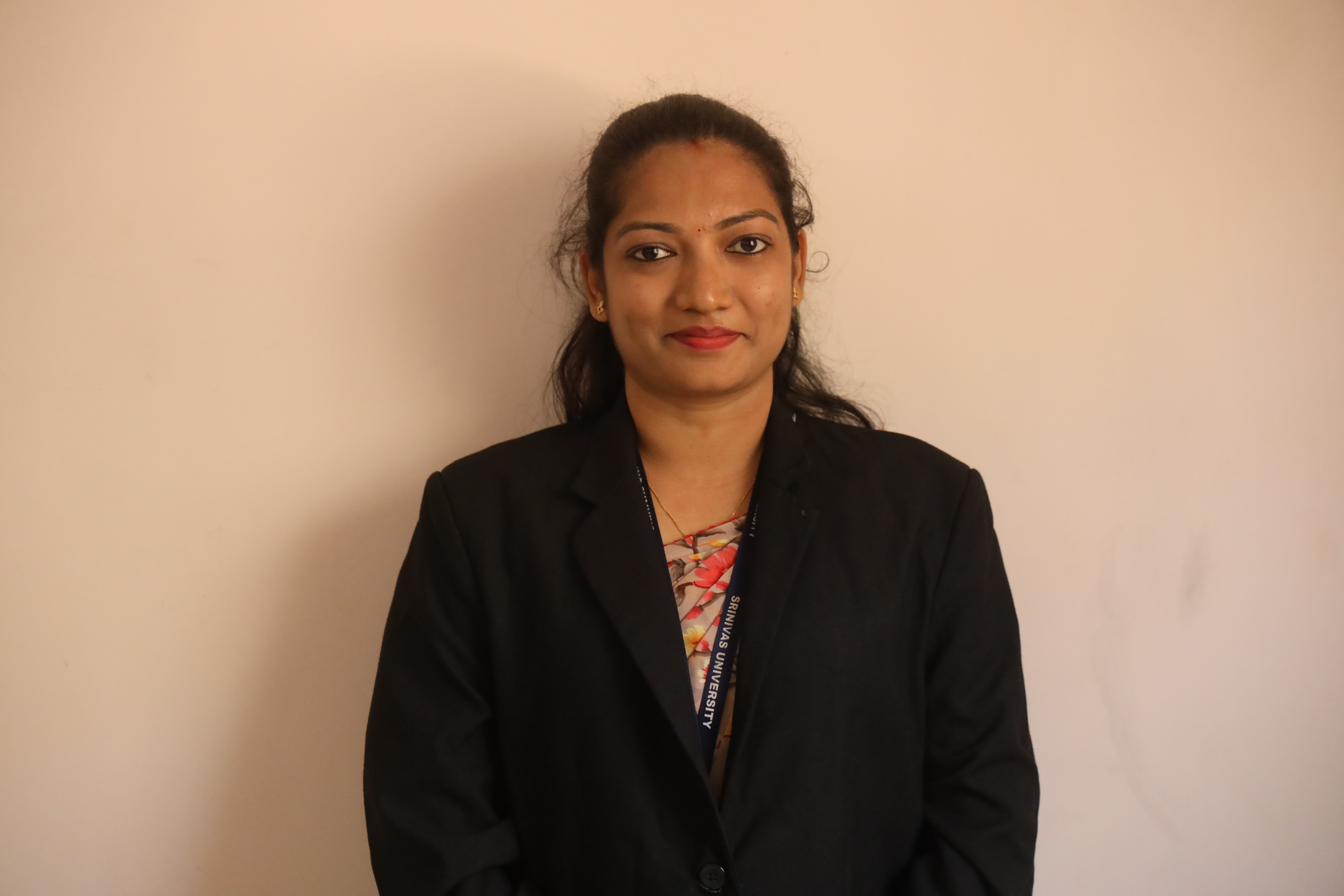 |
Mrs. Chaithra Assistant Professor Years of Experience: 1 No. of papers published : 01 No. of Seminar/Short Term Courses attended : 5 Research Area: Electrical systems, control systems |
Electronics and Communication Student Association – NICSA
The Electronics and Communication Students Association “NICSA” was started in the year 2010 with a view to impart technical skills among students by training the students to present papers in technical seminars and to do mini projects. Students are also encouraged to take up sponsored projects. In addition, Industrial visit, technical talks and guest lectures will be arranged. Experts and working professionals from the industry, research and development centers & the academia are regularly invited to share their experience & to impart knowledge to the E & C Engineering students. Activities will be done to nurture & foster leadership qualities in students & also for team building. Regular workshops will be conducted with eminent resource persons from Industry to enhance the practical knowledge of the students. A Wall magazine named “JnanaVahini” is published every week which will show case the talents of students in curricular and co-curricular activities. Students will be trained in new software’s as per industrial need.

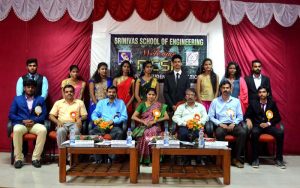
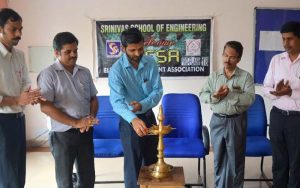
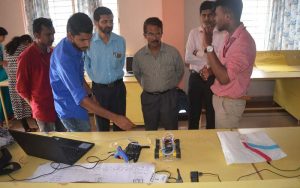
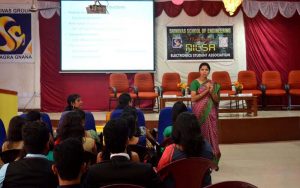
Course Structure:
| SEMESTER 1 | SEMESTER 2 | ||||
| S. No. | Subject | Credit/ Marks | S. No | Subject | Credit/ Marks |
| 1 | Engineering Physics of Materials | 4/100 | 1 | Engineering Chemistry of Materials | 4/100 |
| 2 | Computer Software Concept & Programming | 4/100 | 2 | Information Communication & Computation Technology | 4/100 |
| 3 | Elements of Electrical & Electronics | 4/100 | 3 | Elements of Mechanical and Civil Engineering | 4/100 |
| 4 | Quantitative Techniques in Engineering –I/II | 4/100 | 4 | Quantitative Techniques in Engineering –I/ II | 4/100 |
| 5 | Lab on Engineering Physics of Materials | 2/100 | 5 | Lab on Engineering Chemistry of Materials | 2/100 |
| 6 | Electrical & Electronics Lab | 2/100 | 6 | Computer Aided Engineering Drawing Lab | 2/100 |
| 7 | Lab on Computer Programming | 2/100 | 7 | Lab on Spreadsheet Programming | 2/100 |
| 8 | Technical English (ESEP – Xlanz) | 2/50 M | 8 | Professional English ( ESEP – Xlanz) | 2/50 M |
| 9 | Principles of Environmental Studies | 2/50 M | 9 | Constitution & Professional Ethics | 2/50 M |
| 10 | Kannada/ Co-curricular Activities/Sports (ESEP) | - | 10 | Kannada/ Co-curricular Activities/Sports (ESEP) | - |
| Total Credit | 26/800 | Total Credit | 26/800 | ||
| SEMESTER 3 | SEMESTER 4 | ||||
| S. No. | Subject | Credit/ Marks | S. No | Subject | Credit/ Marks |
| 1 | Engineering Statistics | 4/100 | 1 | Numerical Techniques and Integral Transforms | 4/100 |
| 2 | Analog & Digital Electronics Circuit Analysis | 3/100 | 2 | Communication System | 3/100 |
| 3 | Computer Architecture Design | 3/100 | 3 | VLSI Architecture | 3/100 |
| 4 | Signals and System | 3/100 | 4 | Information Theory and Coding | 3/100 |
| 5 | Digital System Design Using HDL | 3/100 | 5 | Computer Networks | 3/100 |
| 6 | Analog & Digital Electronics Circuit Analysis Lab | 2/100 | 6 | Communication System Lab | 2/100 |
| 7 | Digital System Design Using HDL Lab | 2/100 | 7 | Computer Networks Lab | 2/100 |
| 8 | Employability Skills Enhancement Programme -1 | 25/50 | 8 | Employability Skills Enhancement Programme 2 | 2/100 |
| 9 | International Certification course on current trends -1 | 1 | 9 | International Certification course on current trends -2 | 1/100 |
| Total Credit | 23/750 | Total Credit | 23/750 | ||
| SEMESTER 5 | SEMESTER 6 | ||||
| S. No. | Subject | Credit/ Marks | S. No | Subject | Credit/ Marks |
| 1 | Digital Signal Processing | 3/100 | 1 | Antenna and Wave Propagation | 3/100 |
| 2 | Sensors and Actuators | 3/100 | 2 | Digital Image Processing in AI using Python | 3/100 |
| 3 | Microcontrollers and Embedded System | 3/100 | 3 | Core Elective - 1 | 3/100 |
| 4 | Introduction to Artificial Intelligence | 3/100 | 4 | Core Elective - 2 | 3/100 |
| 5 | Virtual Reality | 3/100 | 5 | Open Elective - 1 | 3/100 |
| 6 | AI Lab | 2/100 | 6 | DSP and Antenna Design Simulation Lab | 2/100 |
| 7 | Microcontrollers and Embedded System Lab | 2/100 | 7 | Digital Image Processing using Python Lab | 2/100 |
| 8 | Employability Skills Enhancement Programme-3 | 2/50 | 8 | Employability Skills Enhancement Programme 4 | 2/100 |
| 9 | Internship -1 (Embedded System using Arduino and Galileo) | 2/50 | 9 | MOOC/COURSERA - 2 | 1/50 |
| 10 | MOOC- 1(Dept. Specific) | 1/50 | 10 | International Certification course on current trends-4 | 1 |
| 11 | International Certification course on current trends-3 | 1 | |||
| Total Credit | 25/850 | Total Credit | 23/800 | ||
| SEMESTER 7 | SEMESTER 8 | ||||
| S. No. | Subject | Credit/ Marks | S. No | Subject | Credit/ Marks |
| 1 | Bio Medical Instrumentation | 3/100 | 1 | Technical Seminar | 2/100 |
| 2 | Computer Vision | 3/100 | 2 | MOOC– 3 (Research Methodology) | 1/50 |
| 3 | Introduction to Information Security | 3/100 | 3 | Project (With Patent Application) | 12/200 |
| 4 | Core Elective – 3 | 3/100 | |||
| 5 | Fundamentals of Industrial IOT System | 3/100 | |||
| 6 | Industrial IOT Lab | 2/100 | |||
| 7 | Mini Project | 2/100 | |||
| 8 | Internship - 2 | 2/50 | |||
| 9 | ESEP: Patent Filing and IPR | 2/50 | |||
| 10 | Social Internship | - | |||
| Total Credit | 23/800 | Total Credit | 15/350 | ||
Note :
(1) University Registration Fee, Semester Registration Fee, Eligibility Fee for other State/NRI students,
Examination Fee, Uniform Fee, Hostel Fee, Industry visit fee, Internship fee, Transportation fee, Sports & games
fee, Extra-curricular activity fee, etc., are extra. The course fees mentioned for subsequent years may vary annually
up to 6%.
(2) The University Placement & Training Team will assist the admitted students to get (a) Earn While Learn, (b)
Industry Internship, and (c) Final Job Placement.
(3) Karnataka Quota* : 1. Applicable only to Karnataka students having 50% or more in the applicable subject
combination. 2. To be considered as Karnataka domicile student should have studied last 7 years including
PUC/Degree in the Karnataka
(4) SC/ST/OBC Candidates should submit the Caste Certificate and Income Certificate to become Eligible
The Rotaract Club of SUCET in association with the Blood Bank of Srinivas Hospital, Mukka organised a Blood Donation Camp on October 29th 2021. We were made aware of the urgent requirement at the hospital and 37 Units of blood were donated. Although more than 70 students turned up, several of them were turned back due to numerous deficiencies. Dr. Rachana thanked the students for heeding their call and certificates were distributed to all the donors.
